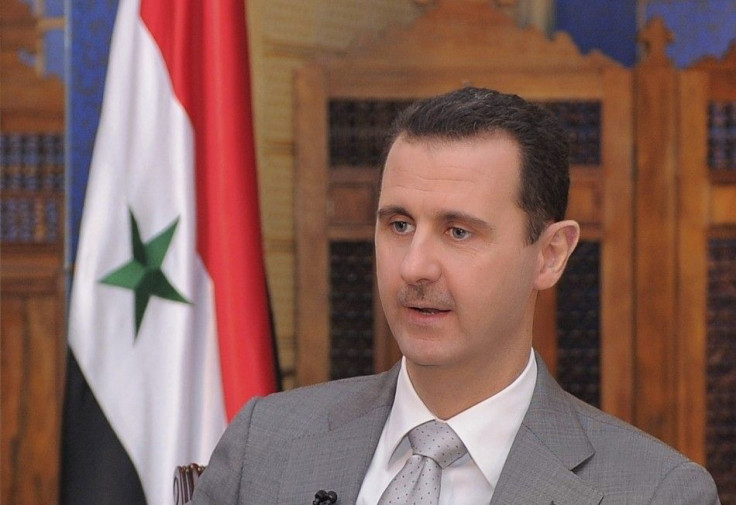Why Syria Is A Tough Nut To Crack: Counting Its Allies, Enemies And Other Love-Hate Relationships

Syria fits the bill of a nation that has made most of its friends by virtue of having common enemies. There is probably no other way to explain how this fiercely secular Arab nation has been commanding tremendous support from the religious hardliners that routinely make up Iranian governments.
It has been more than a year since Syrian President Bashar al-Assad started crushing dissent, killing thousands of armed rebels and civilians in the process. Notwithstanding the existence of a handful of organizations facilitating international security, peace and human rights, Assad has found a way to elicit an international response that isn't remotely detrimental to his governance or his existence.
The United Nations Security Council was unable to issue a solid ultimatum with specified warnings (like the Arab League) due to pressure from Syria's allies Russia and China. Though Moscow and Beijing tried to soften their stand and have approved the latest ultimatum instead of vetoing it, it is largely seen as a gimmick to save them from being accountable for the Syrian massacre.
For several reasons, the NATO doesn't want to get directly involved like it did in Libya which led to the killing of Libyan dictator Moammar Gadhafi by the rebels. What is it that stops everyone from taking control of the situation in Syria?
Assad has the loyal backing of strategic allies spread across the world, including nations that even the world powers can't afford to upset.
Bedfellows
Iran - The friendship between Syria and Iran is largely attributed to geopolitical reasons. During the Iran-Iraq war, Syria supported Iran against their common Arab enemy Iraq, risking isolation from Saudi Arabia and several other Middle Eastern nations. Ever since, Syria has enjoyed unabated Iranian support reinforced by their common animosity towards Israel and, to some extent, the US.
Following the signing of a military cooperation agreement in June 2006, Iranian Defense Minister Mostafa Mohammad Najjar said Iran considers Syria's security its own security, and we consider our defense capabilities to be those of Syria.
Russia - Russia holds on to Syria as its only Middle East ally (somewhat similar to the American friendship with Israel). Russia has retained close ties with Syria since the Soviet era and is currently supplying the country with advanced missiles and other arms, according to an Agence France-Presse report. However, the supposedly anti-interventionist Russia likes to justify its pro-Syrian stand saying that Syria's protests are an internal matter that should be handled domestically.
China - China has remained a loyal Syrian ally throughout the uprising, joining Russia in safeguarding Assad from any action from the West. Using Syria to serve its anti-US interests, China reiterated last year that the Syria has to reach a solution for the crisis and that the international community must respect its sovereignty.
China also has economic interest in supporting the Syrian government. The billion-dollar bilateral trade between the nations has grown steadily and there is no reason for China to oppose Syria sacrificing exports to Damascus.
Nemesis
Israel -The Jewish state is Syria's arch-nemesis. Most of Syria's Middle Eastern alliances are directly or indirectly determined by the fact that Israel's is its number one foe.
Recovering the Golan Heights from Israel -- it was once under Syrian control -- is a key motive that contributes to the perpetual state of cold war between the two nations. In a declaration popularly referred to as the Assad Doctrine, Syria says Arab nations could extract maximum concessions from Israel only by acting in concert.
US - Unsurprisingly, the US policy in the Middle East has Israel written all over it. Whoever is anti-Israel is more or less anti-US by default. Washington's attitude towards Damascus is that of mutual grudge at its best and that of outright hostility, in general.
Though Assad is fully aware of the US influence on Israeli government, he has never tried to soften his anti-US stance. Instead, his policy was to coerce the US into accepting Syria's pivotal role in the Middle East peace process by reiterating the old adage, there can be no war in the Middle East without Egypt, but there can be no peace in the Middle East without Syria.
Love-Hate Relationships
Palestine - Syria has been consistently objecting to any Palestinian-Israeli agreement. Syria sponsored the creation of the Palestine National Salvation Front, headquartered in Damascus, an umbrella organization to unite Palestinian groups that are against signing any compromises with Israel. While Damascus commands complete support of extreme anti-Israel groups of Palestine, organizations which are ready for settlement with Israel are largely anti-Assad.
Lebanon - Lebanon too stands divided in its approach to Syria. The presence of Shiite Syrian ally Hezbollah in South Lebanon strongly counters North Lebanon's anti-Syrian stance. Prime Minister Najib Mikati's cabinet is dominated by Hezbollah and its allies, which as of now, makes Lebanon pro-Syria. Despite fears that Syrian crisis might spill over to Lebanon, the government is seen as sticking on to its pro-Assad stance.
© Copyright IBTimes 2024. All rights reserved.






















